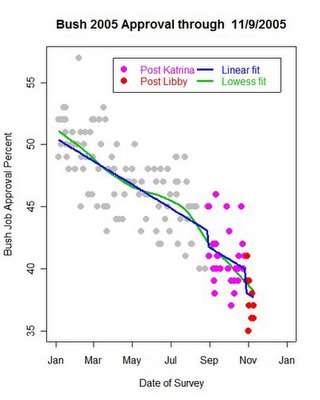I'm not embarassed to admit that I grew up loving Star Trek. I've been to a small fistful of Trek conventions, and there was a time when the original series was so fresh in my mind that I could come into any episode somewhere in the middle and identify it by name within seconds. No, I was never the sort of fan who owned a Starfleet uniform, but do have a bit of Trek stuff kicking around somewhere; I think I still have a copy of the original writer's guide for The Next Generation, for instance.
I still have some love left for it. The original show can be great fun, and there is some good stuff about The Next Generation and Deep Space Nine, which were sometimes very cunningly written. But the steam went out of my relationship with Trek long ago. I think I saw all of half a dozen episodes of Voyager, and maybe three episodes of Enterprise. I like babes in spandex as much as the next guy, but I don't want them to be the best thing about my Star Trek.
Is it just that I'm not a kid any more, or did Trek just wear out its original conceit? In his review of the last Star Trek film, Nemesis, Roger Ebert expresses the way I feel and suggests the latter.
I'm sitting there during Star Trek: Nemesis, the 10th Star Trek movie, and I'm smiling like a good sport and trying to get with the dialogue about the isotronic Ruritronic signature from planet Kolarus III, or whatever the hell they were saying, maybe it was “positronic,” and gradually it occurs to me that Star Trek is over for me. I've been looking at these stories for half a lifetime, and, let's face it, they're out of gas.
There might have been a time when the command deck of Starship Enterprise looked exciting and futuristic, but these days it looks like a communications center for security guards. Starships rocket at light speeds halfway across the universe, but when they get into battles the effect is roughly the same as on board a World War II bomber. Fearsome death rays strike the Enterprise, and what happens? Sparks fly out from the ceiling and the crew gets bounced around in their seats like passengers on the No. 36 bus. This far in the future they wouldn't have sparks because they wouldn't have electricity, because in a world where you can beam matter — beam it, mind you — from here to there, power obviously no longer lives in the wall and travels through wires.
I've also had it with the force shield that protects the Enterprise. The power on this thing is always going down. In movie after movie after movie I have to sit through sequences during which the captain is tersely informed that the front shield is down to 60 percent, or the back shield is down to 10 percent, or the side shield is leaking energy, and the captain tersely orders that power be shifted from the back to the sides or all put in the front, or whatever, and I'm thinking, life is too short to sit through 10 movies in which the power is shifted around on these shields.
Maybe it's that it's hard to suspend disbelief that long, or maybe it's that Trek itself can't withstand that kind of attention. And I just stumbled across something that makes me think it's the latter.
One of the things I have followed about Trek has been the career of David Gerrold, the writer who most memorably did “The Trouble With Tribbles.” He also wrote the best book about how Trek works, The World of Star Trek, and he wrote that writer's bible for Next Generation. (While I'm at it, let me plug his War Against the Chtorr novels, which have hokey alliterative titles like A Rage for Revenge; they're my favourite pulp guilty pleasure.) Gerrold left Next Generation after a couple of years, and at the time was doing the polite not-explaining-why which makes one suspect that he actually left with a lot of animosity and was biting his tongue. There were rumours that it was something like Harlan Ellison's famous anger toward Trek creator and producer Gene Roddenberry for rewriting “City on the Edge of Forever.”
My recent discovery is an article about the long, unsuccessful struggle to see gay characters on Trek. It includes Gerrold explaining about how wrote a script, “Blood and Fire,” which was an allegory of AIDS. He tells the tale of how it languished in the Trek production organization, and how he tried to bring it to the screen.
Recalled Gerrold, “He [writer/producer Herb Wright] was complaining that he had six rewrites to do. I said, ‘Let me do the rewrite on “Blood and Fire” for you.’ He said, ‘Well, go get Gene's permission.’ I went downstairs, stuck my head into Gene's office and said, ‘Look, I know Herb Wright has to do a rewrite on “Blood and Fire.” Let me do it for you guys. I'll take some of the load off.’ And Gene replied, ‘Gosh, David, I knew I could always depend on you. You're such a good friend.’ Gene said, 'Go upstairs and see if it's all right with Herb Wright.’ Instead of telling him Herb had already said it was all right, I said, ‘Yes, sir.’ ”
“The elevator was real, real slow,” recalled Gerrold about trying to rush to the writer's office to give him the good news. “When I get to the top floor, he's on the phone. Herb holds up his finger Shh! — a sign not to make any noise. On the phone he's saying, ‘Right Gene. Yes, I'll tell him.’ He hung up and said, ‘That was Gene Roddenberry. He told me to tell you that it wasn't all right with me.’ Then Herb said, “I don't lie for any man.’ ”
Sausage, politics, and Star Trek. You don't want to know how they're made.



